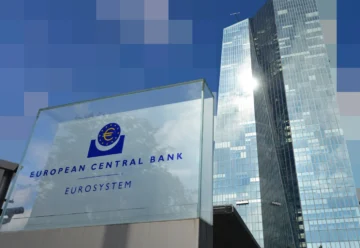Blockchain and Cryptocurrencies Can Improve Traditional Payment Systems

A majority of TradFi representatives believe that blockchain technology could enable faster payment transfers in the next three years, while cryptocurrencies hold the potential to significantly reduce commission costs.
The survey, conducted by Ripple analysts together with representatives of the Faster Payments Council (FPC) organization, showed a high level of interest in blockchain from financial professionals across different countries and TradFi sectors.
According to the survey, 97% of respondents believe that blockchain and cryptocurrencies will play a big role in transforming traditional payment systems over the next three years, as they can enable faster transfers. In particular, about 50% of respondents expect that innovative technologies can not only speed up international payments, but also significantly reduce fees for cross-border transfers.
Earlier, Coinbase analysts proved that using cryptocurrencies could reduce commission costs for international money transfers by 97% and increase the speed of cross-border transfers by 99%.
The study showed that TradFi representatives highly appreciate the possibility of using cryptocurrencies for payments. For example, approximately 52% of respondents think that most merchants will accept cryptocurrencies within the next three years. Notably, respondents from Africa and the Middle East were especially optimistic in this regard, with about 27% expecting a massive shift to crypto payments within the next year. Such optimism may be related to the active development of central bank digital currencies (CBDC) in the countries of the region.
A recent study by the Bank for International Settlements (BIS) found that 93% of central banks are developing and experimenting with CBDCs, and by 2030 there could be up to 15 retail and 9 wholesale digital state currencies in circulation.
However, despite the high interest in blockchain and crypto adoption by TradFi, the survey found that only 17% of organizations surveyed currently support crypto payments. The main barrier to the use of cryptocurrencies and blockchain by payment providers is regulatory uncertainty — 89% of respondents cited the lack of a regulatory framework as the primary deterrent. Other factors cited by respondents included:
- low global adoption of the technology (45%);
- the inability to include cryptocurrencies in tax reporting (32%);
- the need to develop strategies to protect clients from crypto volatility (24%);
- the technical complexity of blockchain infrastructure (20%).
The Ripple and FPC survey covered nearly 300 financial professionals from 45 countries in various TradFi sectors. Respondents included banking institutions, FinTech executives, business analysts studying consumer technology, and retailers.











